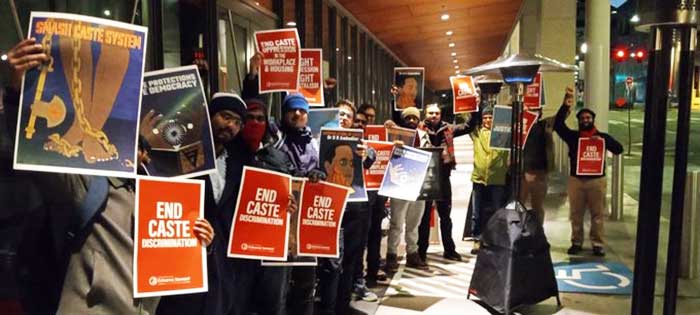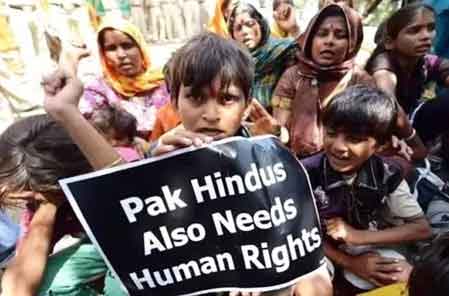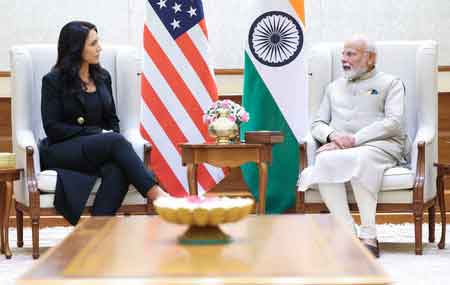California state has dropped its allegations of caste-based bias by two Indian-descent employees of IT giant Cisco but will continue the larger case against the company.
California's Department of Fair Employment and Housing had filed this case in 2020 based on a complaint from an unidentified employee of the company making it the first case of caste-based discrimination reported in the US.
This case went on to be seen as a confirmation of the existence of a typically South Asian form of discrimination in the US and it was subsequently cited in support of moves to add this practice to the list of banned grounds for bias elsewhere in the country such as in Seattle.
The California civil rights department (CRD) filed its request for "partial dismissal" in the Superior Court of California, County of Santa Clara on Monday.
"Only the two individual defendants are being dismissed," said the department's press office in response to a request for clarification. "CRD's case against Cisco remains ongoing. We will continue to vigorously litigate the matter on behalf of the people of California."
The lawsuit by California's Department of Fair Employment and Housing was filed against Cisco System Inc in 2020 on the basis of a complaint from a Indian-descent Dalit employee of the company who had alleged caste-based discrimination against him by two of his supervisors - also of India-descent - and alleged retaliation when he complained.
The suit was filed against the company - Cisco Systems Inc; and the two supervisors - Sundar Iyer and Ramana Kompella.
The department of civil rights has dropped the allegations against the two supervisors, but said its larger case against the company will continue.
"Two Indian Americans endured a nearly three year nightmare of unending investigations, a brutal online witch hunt, and a presumption of guilt in the media after the CRD sullied their reputation alleging that they engaged in discrimination based on caste," said Suhag Shukla, Executive Director of Hindu American Foundation (HAF), which has opposed the listing of caste among banned ground for discrimination.
"We are thrilled that Iyer and Kompella have been vindicated along with our position that the state has no right to attribute wrongdoing to Hindu and Indian Americans simply because of their religion or ethnicity," she added.
HAF was among a group of organizations of Hindu Americans who tried to stop Seattle city from adding caste to the banned list of kinds of bias and it is also now part of an effort to stop California from adopting a legislation banning caste-based discrimination, the first American state to do so, when, and if, that legislation becomes law.
A debate is raging in the Indian American community, joined by other South Asian communities, on the question of adding caste to the list of many kinds of bias banned in the US, with history/origin, religion, color and ethnicity.
HAF, Vishwa Hindu Parishad America and other rightwing Hindu Americans argue that caste-based discrimination is reprehensible, any law banning it here in the US puts a target on the backs of the entire South Asian community, specially Hindus, by portraying them all as purveyors of this practice.
They also argue that discrimination based on caste is covered by existing laws that outlaw all kinds of bias and discrimination and there is no need for a new ban.
Their third, and the final argument, is that the caste-bias in the US is rare and not as rampant as it has been made out to be. They have questioned data cited by supporters of the ban.
Others argue that caste-based discrimination is widely practiced among American communities of people of South Asian descent - from India, Pakistan, Bangladesh and Nepal - and that it's needs to be banned. No one community is being targeted and if HAF and other such organisations agree and acknowledge that caste is a reprehensible practice, they should not oppose its ban.
California state senator Aisha Wahab is among the supporters of the ban and she has introduced a legislation to make the state the first to put caste on the ban list. Kshama Sawant, the Indian American council woman who made Seattle the first city to ban caste, is the most vocal proponent of the movement pushing America to outlaw caste.








Four held in Tripura for social media posts relating to Pahalgam terror attack
Police arrested four people including two retired teachers in the past 24 hours from Tripura’s three districts for making controversial posts on social media relating to the Pahalgam terror attack, officials said on Saturday.
Indian Army responds firmly to ceasefire violations by Pakistani troops along LoC
In the wake of the recent terrorist attack in Pahalgam, Pakistan has resorted to unprovoked ceasefire violations along the Line of Control (LoC). Over the past two days, Pakistani military posts have been targeting Indian positions with small-arms fire. The Indian Army has given a strong and appropriate response to these provocations, official sources said.
US religious freedom body finds conditions for Pakistan minorities 'worsening', urges strong action
Finding "a worsening religious and political climate of fear, intolerance, and violence" for minorities in Pakistan, the US Commission on International Religious Freedom (USCIRF) has asked President Donald Trump's administration to take strong measures against the Islamic Republic.
Residences of LeT commanders, Pahalgam attack suspects demolished across Kashmir
Security forces have intensified their crackdown on Lashkar-e-Taiba (LeT) operatives and suspects linked to the deadly Pahalgam terror attack that claimed 26 lives on April 22.
India, Pakistan will 'get it figured out,' says Trump on border tensions
US President Donald Trump refused to be drawn into India-Pakistan border tensions in the aftermath of the Pahalgam terrorist attack, stating that the two countries will "get it figured out one way or the other."
CM stresses scientific drain construction to combat flood
Chief Minister Prof. Dr. Manik Saha today emphasized the need to construct drains in a scientific manner to quickly drain the water accumulated in the city during heavy rains.
Bangladeshi man, drug smuggler held at Agartala Railway Station
In a significant development, two separate operations at Agartala Railway Station led to the arrest of a Bangladeshi national for illegal entry into India and a local individual involved in attempting to smuggle ganja to Assam.
Suspected Bangladeshi flag on Rickshaw, two detained
Tension flared in the Joynagar area of Agartala on Thursday late night after locals detained two individuals in connection with a rickshaw allegedly bearing the national flag of Bangladesh.